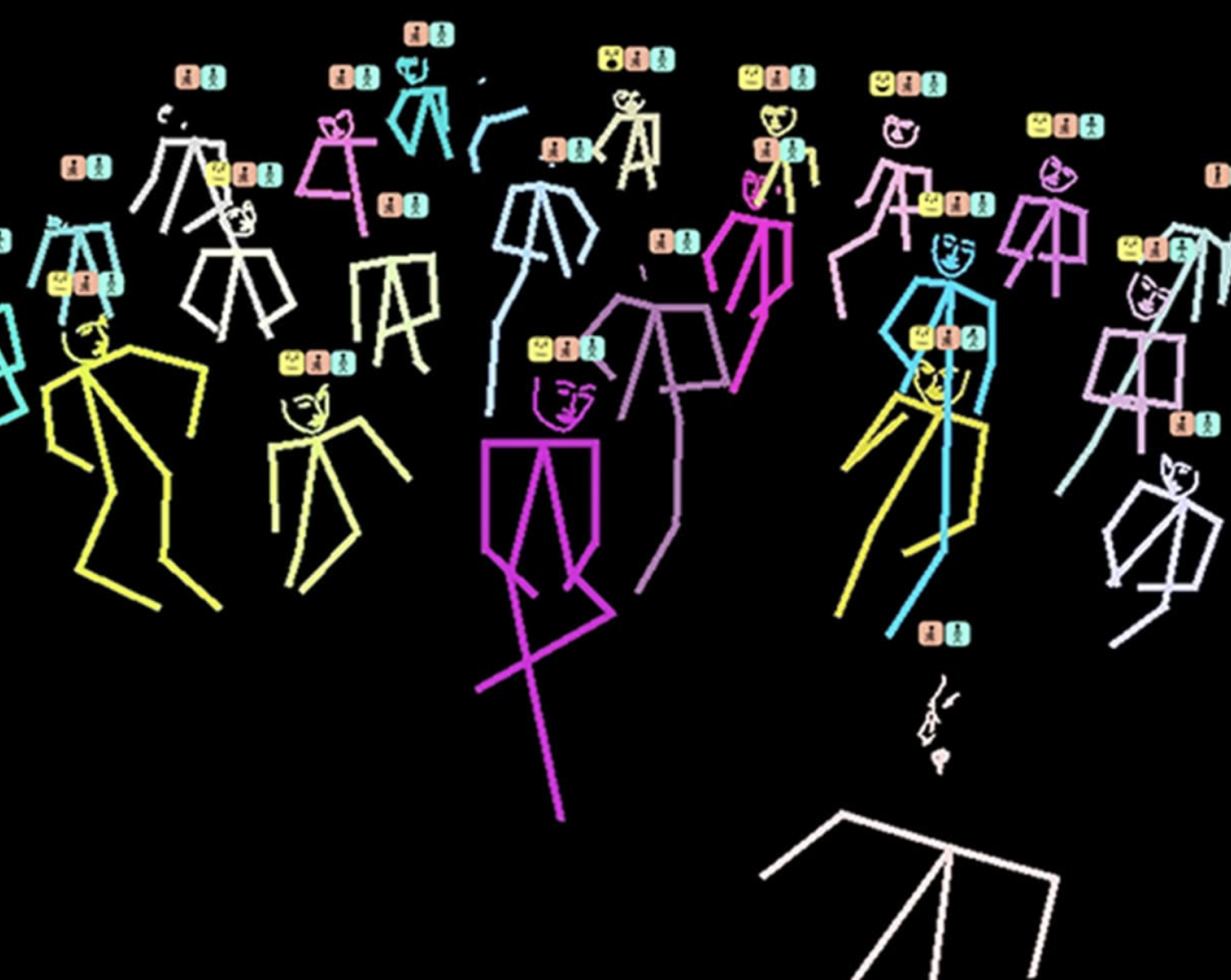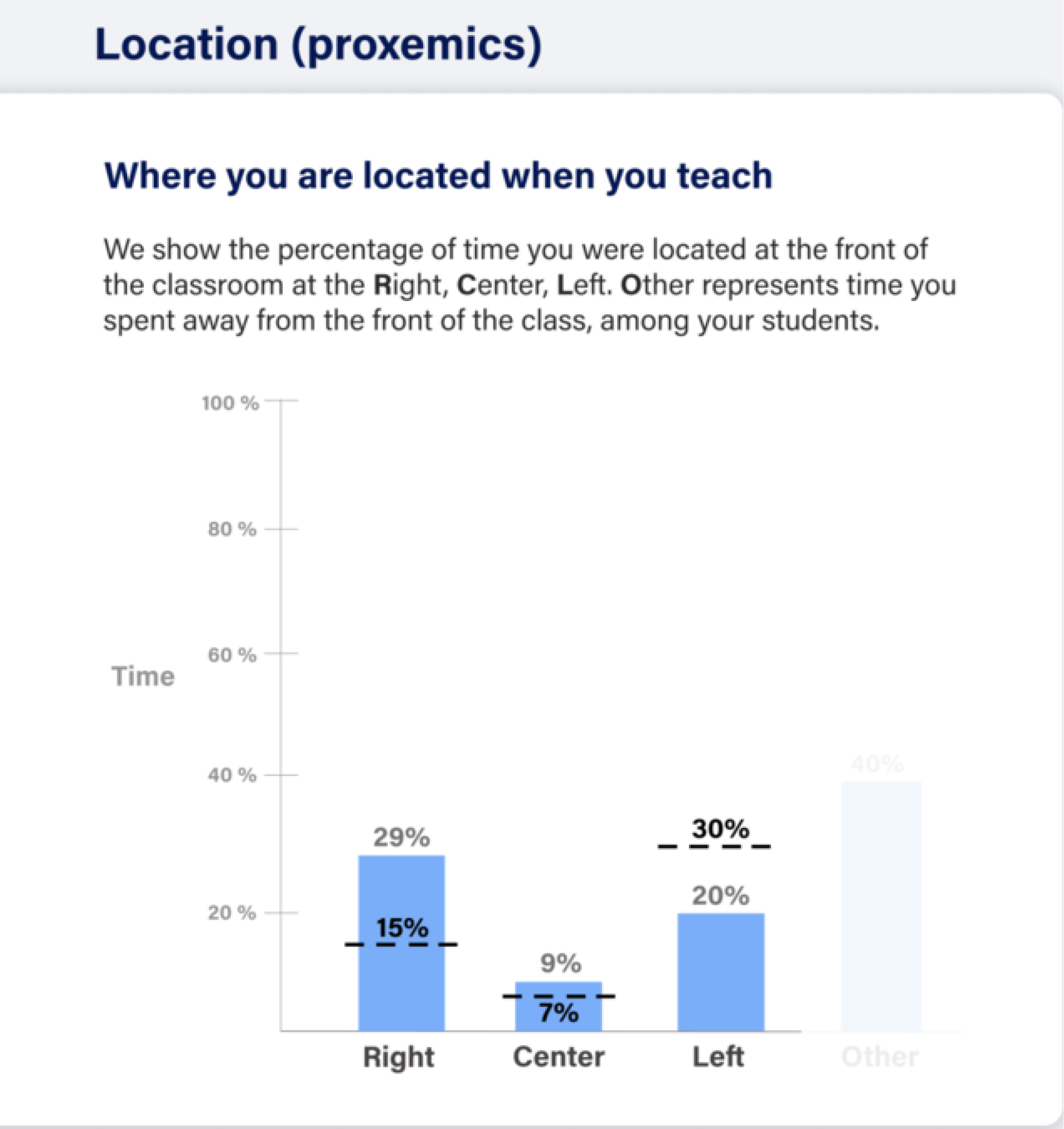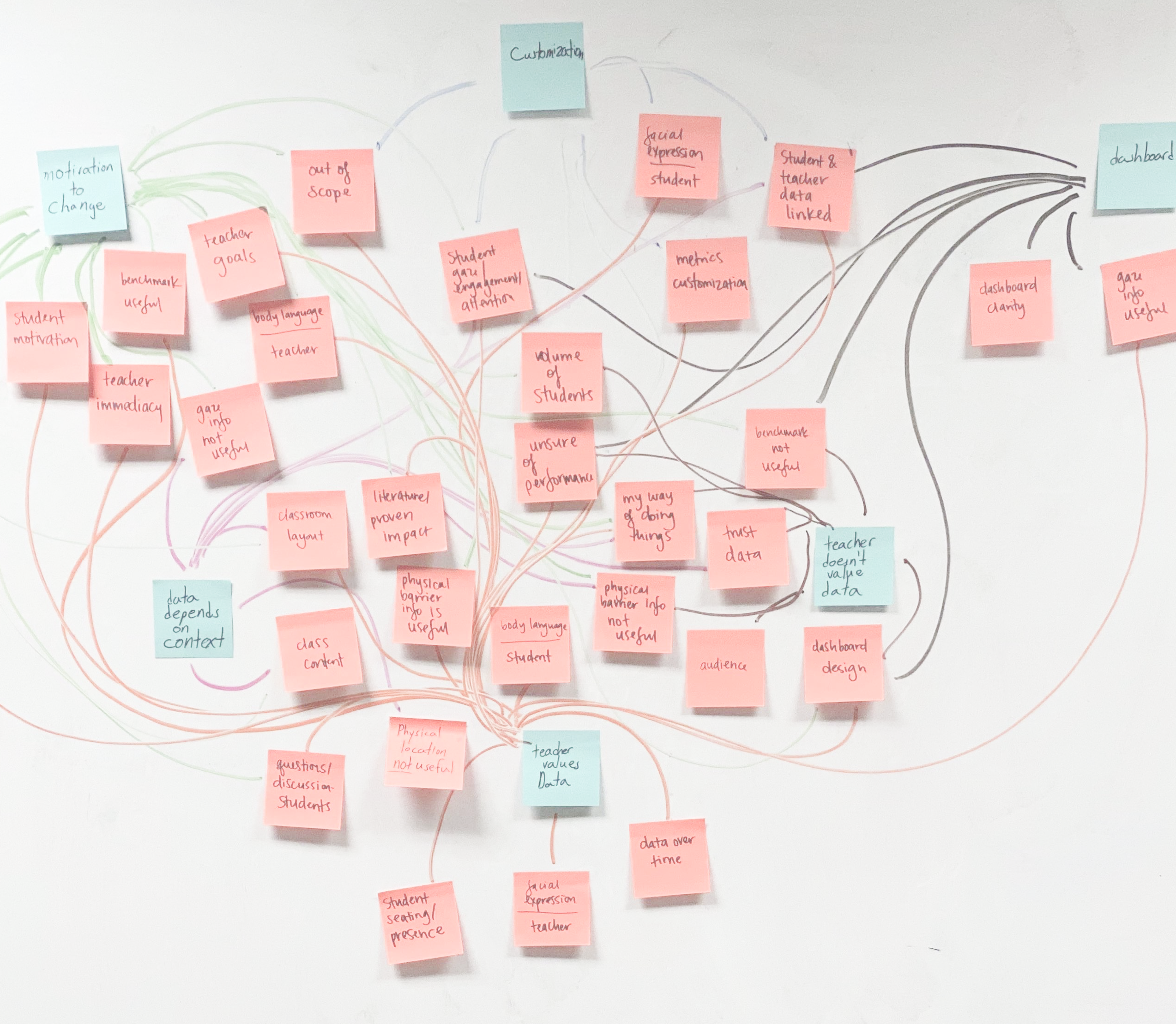ClassInSight
Encouraging teacher immediacy behaviors through persuasive data design
Carnegie Mellon University
Human-Computer Interaction Institute
Lead Research Assistant, Design
Jan - Jul 2020
How might the ClassInSight interface provide teachers clear, actionable, & persuasive nonverbal data that will encourage them to improve their immediacy behaviors?
ClassInSight is an instrumented classroom technology developed at Carnegie Mellon. It uses sensors to capture anonymized student and teacher nonverbal data, with the goal of improving teacher efficacy through nonverbal behavior analysis.
Backend technologies enabling ClassInSight, including OpenPose and Edusense, have been in development at Carnegie Mellon since 2019. I joined the ClassInSight design team in January 2020, immediately after its first teacher-facing user study, to generate insights and develop the next phase of testing that would drive its interface design. I led a team of three undergraduate research assistants to accomplish this work.

Promoting Sensemaking & Motivation

An understudied measure of teacher efficacy is "immediacy" - a teacher's perceived psychological closeness to students that leads to students' improved engagement. Nonverbal behaviors like gaze, physical closeness, and movement can improve immediacy.
In the first interface design study, teachers participating in the Fall 2019 pilot were presented with their nonverbal behavior data, including recommended benchmarks for improving their immediacy behaviors. However, when asked about their motivation to meet these benchmarks many teachers were resistant, and cited some nonverbal behaviors as out of their control.
Our task as a design team embodied the true essence of human-computer interaction: how might we translate the power of the ClassInSight backend technology into displays that would empower teachers to improve their classroom manner?
Advocating an Iterative, Holistic Approach
To inform the design of the ClassInSight interface, my team was tasked with coding teacher interviews, distilling insights, and developing dashboard wireframes for testing. I led the team of research assistants in coding and synthesizing insights from 19 interviews using thematic analysis and affinity clustering.
After discovering significant teacher resistance to the underpinning principles of the ClassInSight app (immediacy), I altered our testing protocol to include more generative research to discover teachers' existing mental models around their nonverbal behaviors and motivations to change.

Impacting Future Design Cycles

Based on our insights, I led the team of research assistants in prototyping a vast array of data visualizations to test with teachers in June 2020. Our goal across these visualizations was to test ways of presenting information in a motivating, nonthreatening way. This involved modulating how "quantified" the data appears, and testing flexible benchmarks which enable teachers to understand their performance yet adjust them based on their circumstances and goals.
Results available July 2020.
© 2019 Infinitude. All rights reserved | Design by W3layouts & K. Johnstone